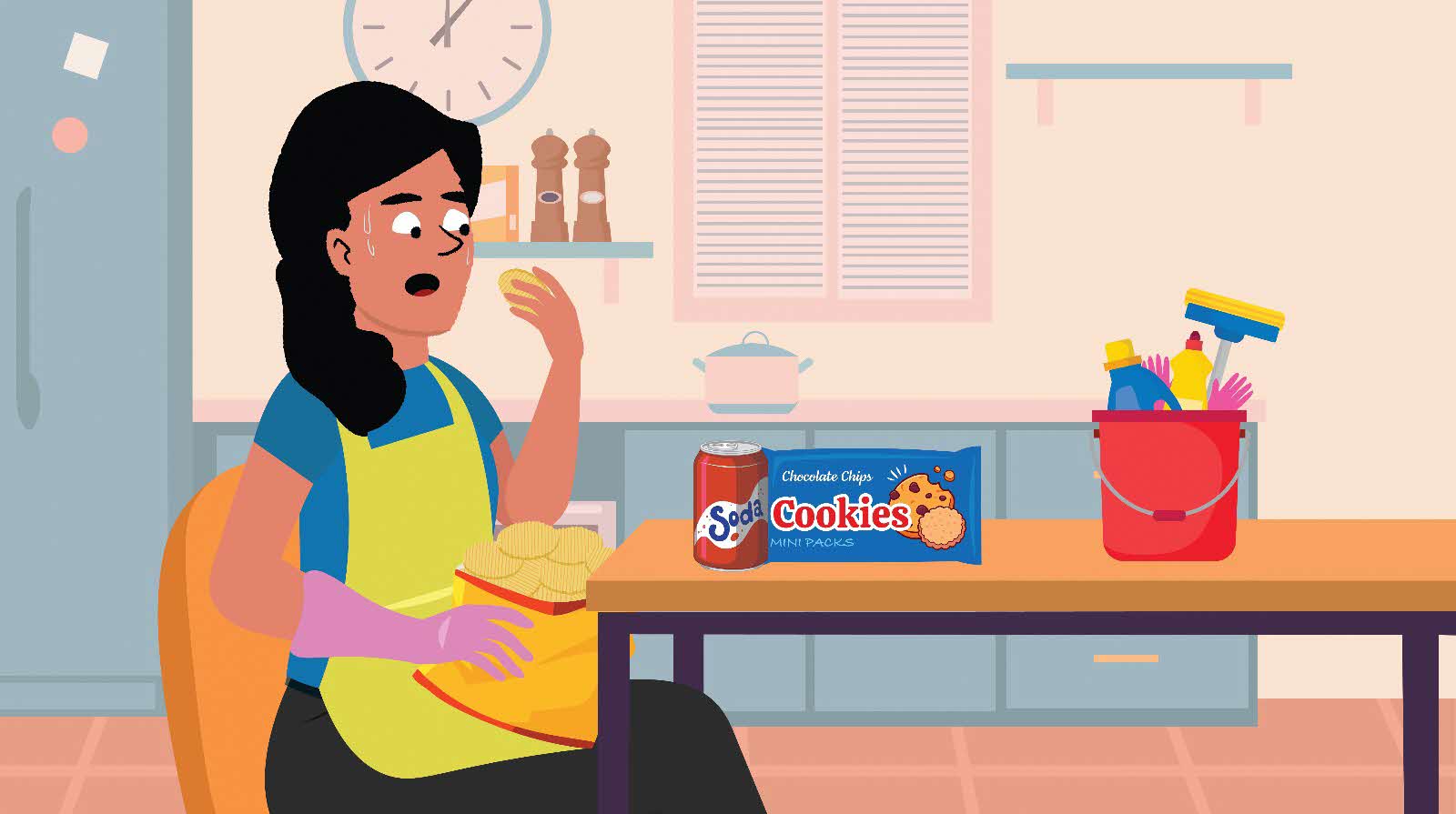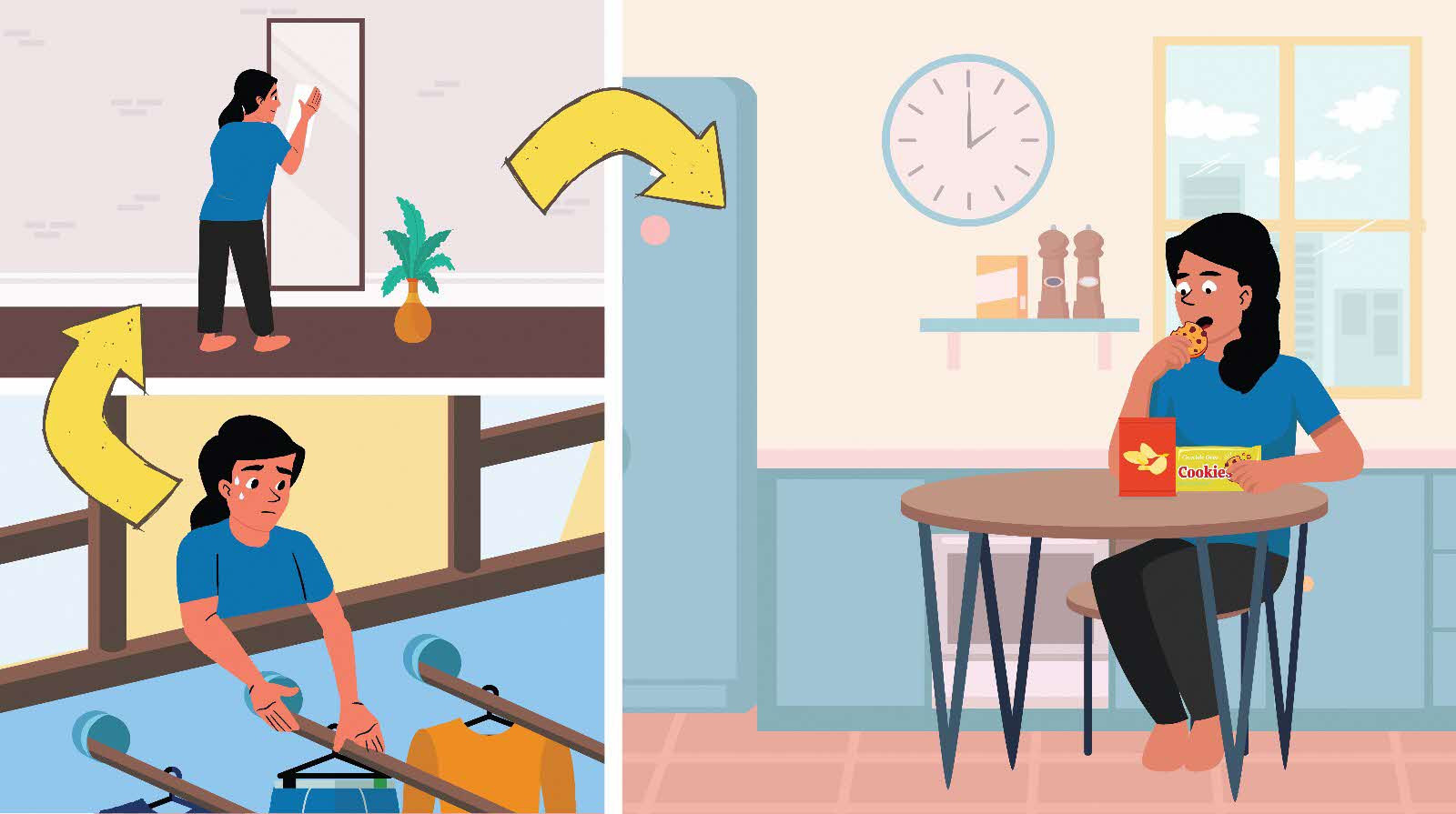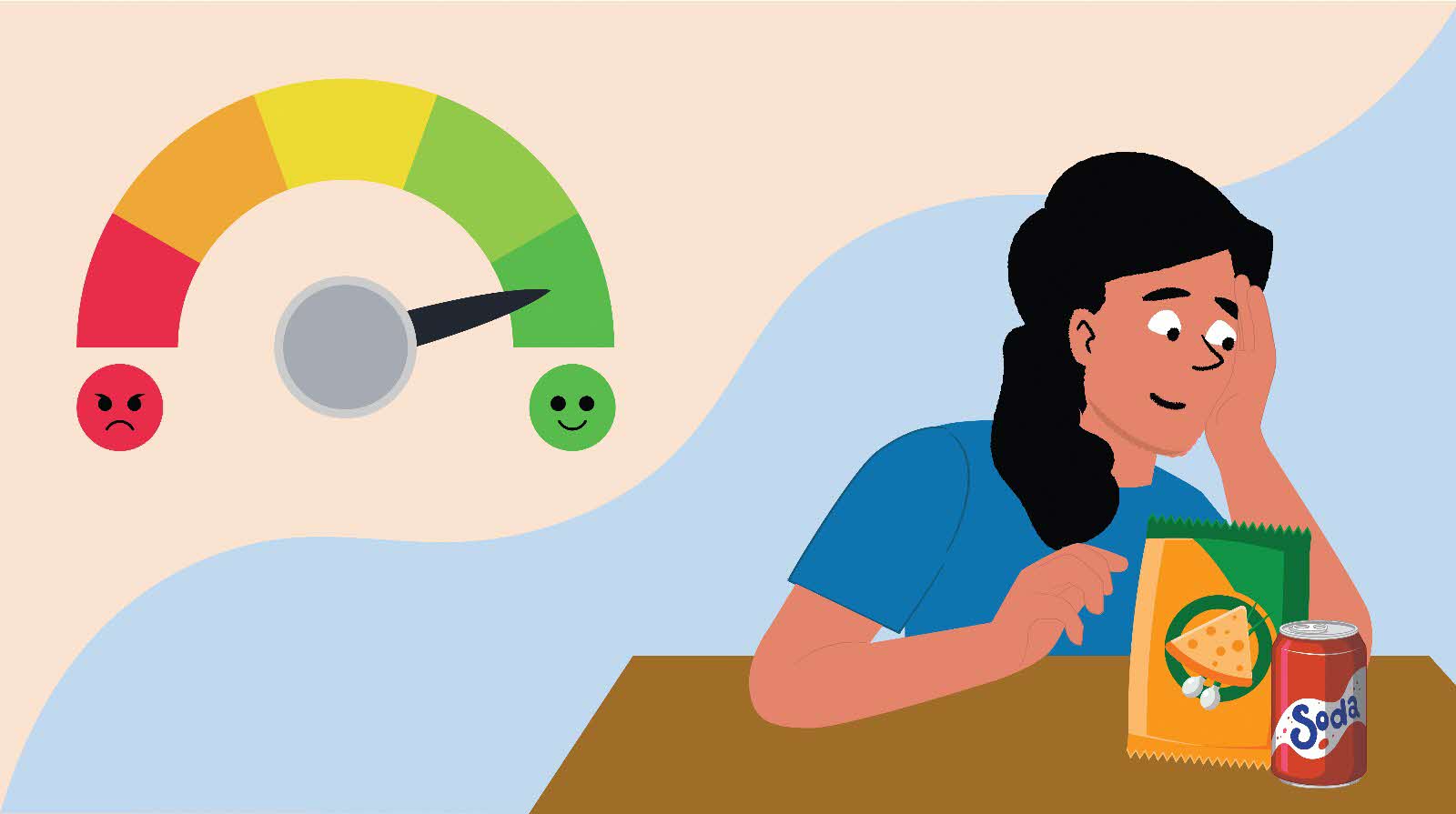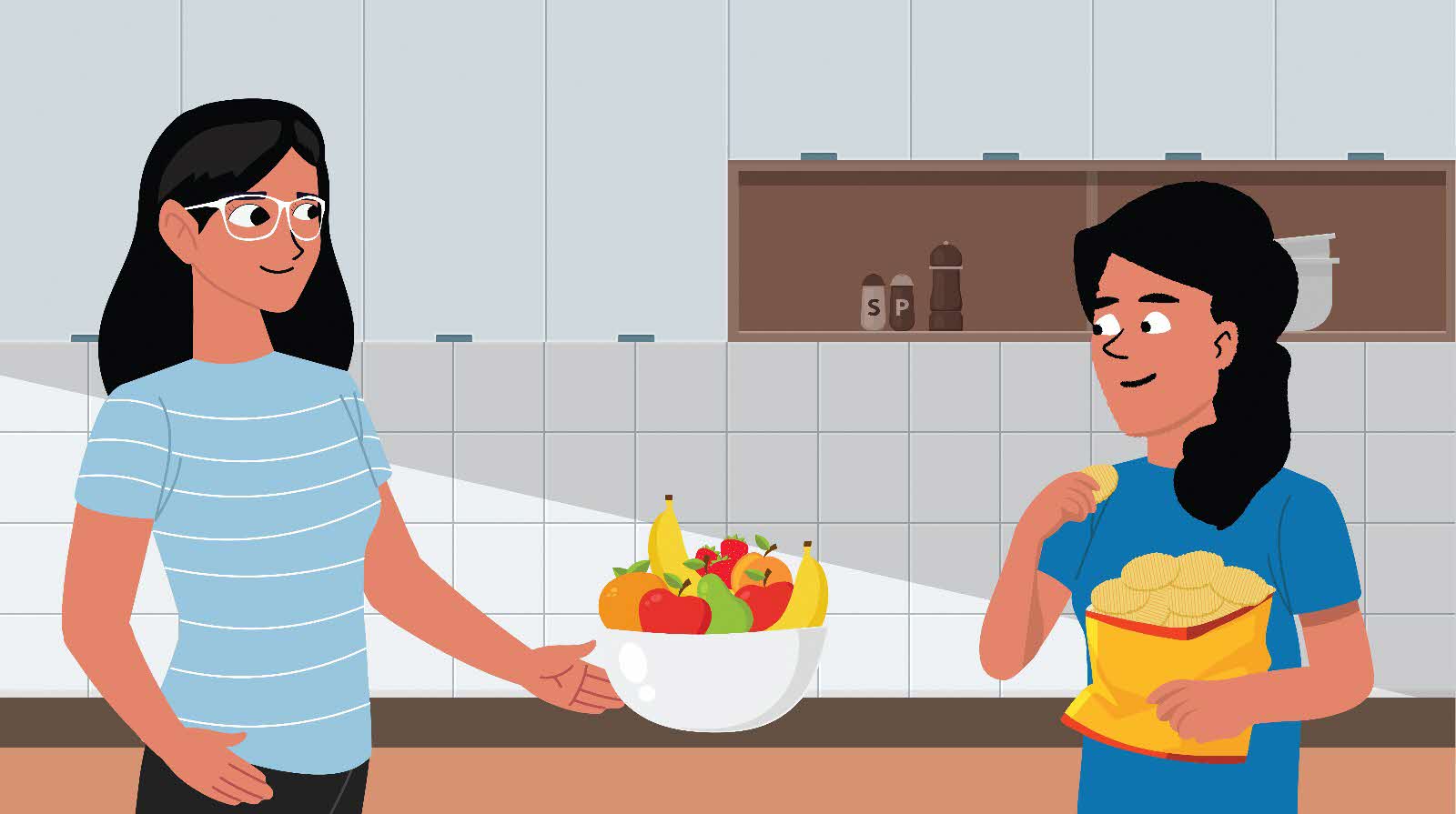Reading time: 4 mins

At-a-glance
- Your helper may snack for different reasons, like feeling unsatisfied after meals.
- Snacking is a way for her to cope with stress.
- Snacking can affect her appetite, leading to poor health and reduced work focus.
- Talk to her about healthier snack options that can keep her healthy.
Have you noticed your migrant domestic worker (MDW) snacking often or buying lots of treats? There could be a few reasons behind this.

If she can’t finish her work on time, she may not have the time for a full meal and might end up relying on snacks instead.
Or, she may simply feel that her meals aren’t satisfying enough as doing household chores can increase your MDW’s appetite.
Ms K Jayaprema, President of the Association of Employment Agencies (Singapore) shares another possible reason. Some MDWs consider items like instant noodles and very sweet desserts or drinks as comfort food or a staple part of their diets.

Snacking to cope with stress
Turning to snacks might be your MDW’s response to daily pressures. Ms Josephine Tham, Head of Care at Brahm Centre, explains that snacking can be a convenient and often affordable way to temporarily cope with stress.
She adds that eating foods high in sugar, salt, and fat triggers the release of dopamine, which brings a quick mood boost. Over time, your MDW may associate snacks with emotional comfort, and this could eventually lead to the development of a snacking habit through the process of conditioning.
Downsides of snacking
If your MDW snacks a lot, she might reduce her appetite for complete, nutritious meals. Not only will this affect her energy levels and her performance at work, but it could also impact her health.
Ms Tham highlights that snacks high in sugar cause rapid spikes in blood glucose levels, prompting the release of insulin. Repeated spikes can put the body under stress, increasing the risk of health issues like diabetes. Similarly, snacks like potato chips that are high in sodium, fat, and calories can contribute to heart disease and obesity.
These could all lead to medical conditions that increase her medical fees and insurance premiums, which you are responsible for covering as her employer.
Tips to help her manage her snacking
If you think your MDW's snacking habit isn’t as healthy as it could be, it's a good idea to chat with her about it.
Find out if it’s due to stress, homesickness, or difficulty adjusting to local food. Avoid sounding like you’re overly controlling or “banning” her from snacking, and discuss if you can adjust her meals to accommodate her preferences.
Providing her with three adequate meals a day and ensuring that she has enough time to finish them can make her less likely to crave unhealthy snacks.

Encouraging your MDW to snack healthier
These don’t mean that she needs to stop snacking. If your MDW just wants something to munch on, suggest healthy, budget-friendly snacks like fresh fruits and vegetables. These can maintain her energy levels and support overall well-being at the same time. Let her know you simply want to give her more options, not control what she eats. Trying to forbid her from eating certain foods might backfire and make her unhappy.
Ms Tham adds that the decision to choose healthier options can also boost her self-esteem, as it reflects a commitment to her health. She also suggests telling your MDW that it’s OK to have the occasional indulgence sometimes since this will help her avoid feeling deprived.
By understanding your MDW’s snacking habits and working with her to find healthier choices, you can help her feel great and work well. Even small changes can go a long way for your whole household.